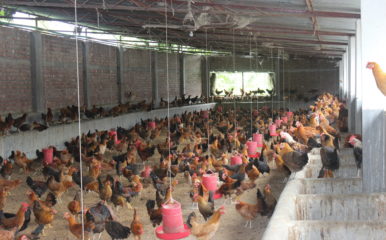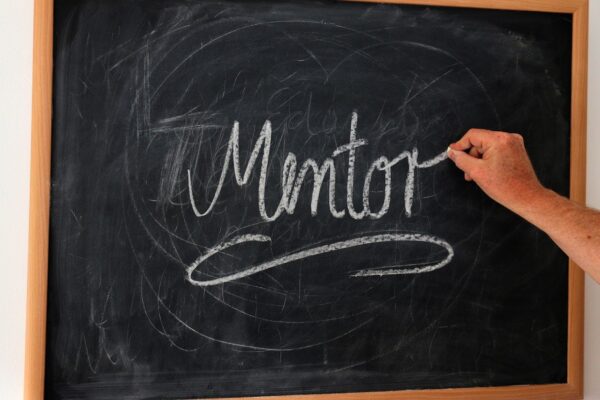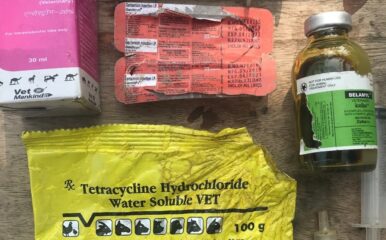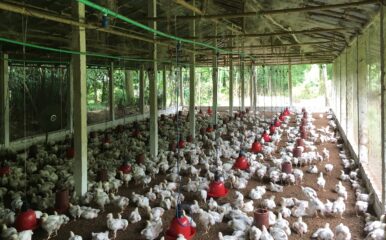
Catalysing a mentoring network for tomorrow’s One Health leaders
Published on 24/06/2024

Gerd Altmann/ Pixabay
Veterinary infectious disease researchers have broad responsibilities, from enhancing societal gains through healthy pet ownership to improving livestock production and welfare, and contributing to food security and food safety. The COVID-19 pandemic was a stark reminder that public health is intimately linked to that of animals and the environment and re-affirmed the urgency for One Health approaches to tackle underlying causes and ‘build back better’.
One Health recognises that zoonoses, emerging infectious diseases and antimicrobial resistance are all linked to man-made changes in climate, global connectivity, land use, health and food systems, and that solutions to these complex challenges require interdisciplinary collaboration. Embracing One Health does not diminish individual discipline-based skills or prevent us striving for excellence. But it does require a lot more than just to ‘do the research’. We need to communicate across disciplines and embrace the synergy that comes when diverse disciplines work together.
We have to go beyond our comfort zones to disseminate findings to broader audiences than we are used to, think about how to translate research into useful outcomes, advocate for science at its interface with stakeholders including policymakers, and collaborate with people from different sectors, cultures and geographical settings.
Early-career researcher support
This is difficult enough for experienced researchers, as we have seen and reflected on during the lifetime of this Hub. But for early-career researchers it can be overwhelming and may seem like a distraction from the ‘main’ career goals of making fundamental discoveries, publishing in the best journals and winning that prestigious fellowship or grant.
A potentially exciting journey at the forefront of science(s) can turn to overload. Without the right support at the right time, talented individuals are being lost to impactful research that is contributing to knowledge and understanding of complex challenges.
Mentorship is a valuable tool that can support career development and I’ve felt both its benefits and its absence at various points in my own, now rather long, career.
Jumping the gap from researcher to research leader has always been tough, especially for women and for those in resource-poor settings or without access to support. However my mentoring of others at institutions where I’ve worked and in networks such as the Hub and the International Veterinary Vaccinology Network, tells me that the stresses felt by many early-career researchers are increasingly extreme. Short term contracts, uncertain funding, the need to publish in good journals and expectations that aspirational researchers must develop wide-ranging knowledge, intellectual abilities, behaviours and attitudes compatible with leadership, all conspire to build the pressure.
So, when considering how to use the award that came with the Plowright Prize, I didn’t need to think so hard. I had already decided that from this October, when I will start a phase of flexible retirement, I would spend more time offering support to early-career researchers at my own institution. The notion of developing a more extensive mentoring network for veterinary infectious disease One Health researchers was on the wish-list of things to achieve before stepping back entirely from science.
Interdisciplinary collaboration
Now, thanks to this award, which I am thrilled to receive, I have the chance to see this become a reality. I am pretty sure that establishing an active mentoring network to support future research leaders in the UK and in low-and-middle income countries where many pathogens that pose threats to animal and public health are endemic, with a declared focus on One Health, will have an impact beyond any single piece of research I might enjoy as a finale to my career
It is not feasible to start this network by inviting in everyone working in veterinary infectious diseases from all geographic regions, much though that is a tempting ideal. I want this initiative to be sustainable so it will start small and hopefully will grow and prosper. In the first instance – one cohort for one year, funded by Plowright – attention will focus on UK veterinary schools/research institutes as well as established research networks in Africa and Asia.
My aim is to recruit a group of mentors whose research is in veterinary infectious disease spanning the spectrum of basic, clinical, translational and policy research and who are active champions of interdisciplinary collaboration. Already I have spoken with several potential mentors and I’m pleased to report that their responses have been positive.
Once the mentor group and a management board is established, we will develop the planned activities and expect to recruit the first cohort of approximately 25 early-career researchers to be in place from April 2025.
Networks and relationships
Mentoring can take many forms but in essence is about establishing networks and relationships between people who are not connected by line management, and providing a safe space for discussion, brainstorming and support. In this new network, I hope we can support many activities which, in addition to traditional one-to-one mentor-mentee pairings, will include group mentoring, peer mentoring and speed mentoring.
The network will also host online lectures, workshops and small group sessions in interdisciplinary learning and One Health from invited speakers and network members – which in turn will generate a growing bank of resources available to subsequent cohorts of mentees in the network.
Throughout my career I have pursued research that improves the understanding, management and control of animal infectious diseases. I have been fortunate to have received support from many who shared their knowledge and experience, gave me confidence, increased my effectiveness, and developed my career vision. I cannot think of a better career legacy than supporting future generations of research leaders – and I am grateful to the Plowright Prize judging panel and the RCVS Knowledge team for giving me the opportunity to do so.


